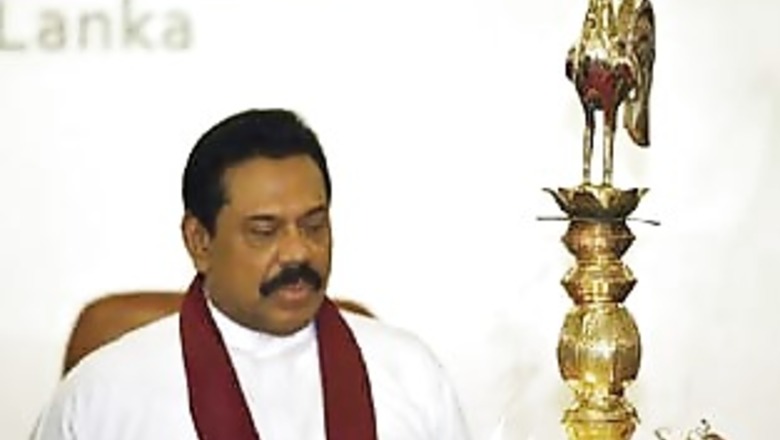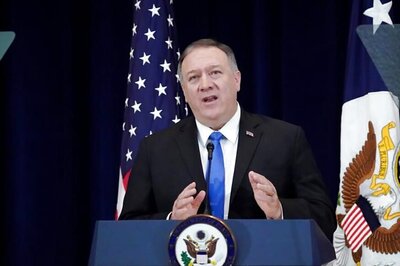
views
Colombo: Sri Lankan President Mahinda Rajapaksa's ruling coalition has recorded a strong victory at the polls in his native south, helped by his popularity after defeating Tamil Tiger rebels in a 25-year war.
The president's coalition won 38 seats in the 55-member council of Southern Province in Saturday's poll, election officials said early on Sunday.
The popular vote for parties in Rajapaksa's United Peoples Freedom Alliance was 68 per cent, a lopsided win but less than the 70-80 per cent the government had forecast in the province, where Rajapaksa has started massive development projects including the country's largest port.
The margin was still strong enough that Rajapaksa is now likely to call early national elections.
Election monitors have said there was some violence, but it was low compared to pre-poll incidents.
Opposition parties had alleged use of state media and resources, as well as promises of government jobs, to the ruling party's advantage during the campaign.
With the victory, Rajapaksa's ruling coalition has won all eight provincial elections held in a staggered manner since May 2008 to select provincial councillors. Only the formerly Tiger-ruled Northern Province has yet to vote.
Analysts say Rajapaksa would opt for an early presidential poll, which his allies expect him to call in March, while still enjoying popularity from winning the war against the Tigers.
That popularity could fade if anticipated economic benefits from peace fail to materialise. There is already public grumbling over the high cost of living.
In May, Rajapaksa's government defeated the Liberation Tigers of Tamil Eelam (LTTE), who fought a 25-year war with successive governments for a separate state in the country's north and east.
Rajapaksa is also expected to call parliamentary polls in March.
Constitutional changes are part of what Sri Lanka's minority Tamils, who say they are discriminated against, want and could help prevent new conflicts. Rajapaksa has said he expects to incorporate some of them if he is re-elected to a second term.
The earliest Rajapaksa can call a presidential poll under the constitution is when he completes his fourth year at the helm in November.
If Rajapaksa did not call early polls, the next parliamentary election would be held in April, and the next presidential poll in November 2011.




















Comments
0 comment